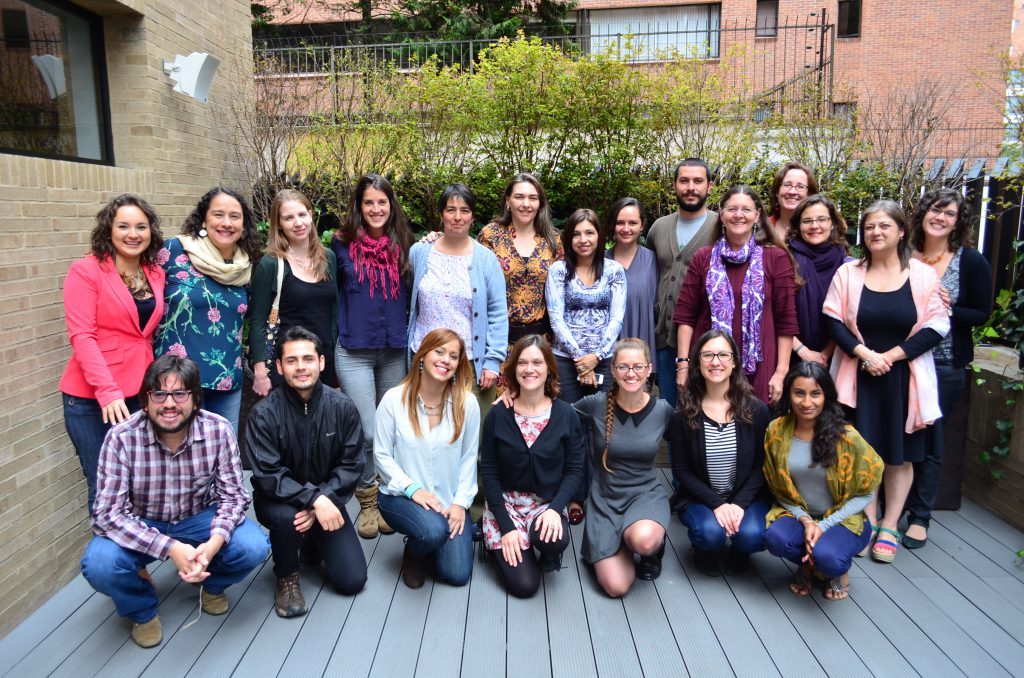About WOLA’s Women and Incarceration Project
Women across the Americas are being incarcerated at alarming rates. The United States is well known as the country that incarcerates more people, including women, than any other place in the world. In Latin America, punitive drug laws are the driving force behind women’s incarceration. Available data shows that in most Latin American countries, the majority of women in prison are there for minor, non-violent drug offenses. Other women in Latin America are deprived of liberty for attempting to access abortions, suffering miscarriages, or non-violent offenses such as theft. In some countries, 40 to 50 percent are in pretrial detention, where they can languish for years before seeing a judge. While in prison, these women live in deplorable conditions in facilities designed for men, separated from their families and loved ones.
Most incarcerated and formerly incarcerated women face seemingly insurmountable odds in their lives. They come from situations of pervasive poverty and inequality, have low levels of education and are either underemployed or unemployed. Many have histories of trauma and abuse. And most are responsible for providing for their children and other family members. They pose no “threat” to society, but they bear the brunt of punitive policies – with devastating consequences for themselves, their families and communities.
Prison only serves to worsen this situation further, as criminal records limit chances of finding decent employment and housing after release from prison. All face stigma and discrimination long after their sentences are served – and women face far more stigma than men deprived of liberty, as they are seen as defying the gendered roles assigned to them by society. Despite these odds, formerly incarcerated women are coming together across the region to build bridges of solidarity, organize, and advocate for change.
Working in collaboration with our partners, WOLA’s project on women and incarceration is supporting the development of a regional, grassroots movement of formerly incarcerated women and their families in Latin America. We also engage in advocacy to change prevailing policies that result in excessive criminalization and incarceration, including punitive drug laws. Our goal is to dramatically reduce the number of women put behind bars in Latin America.
WOLA, the International Drug Policy Consortium (IDPC) and Dejusticia, with the support of the OAS’s Inter-American Commission of Women (CIM), convene a working group on women, drug policy and incarceration composed of human rights and drug policy experts and activists, representatives from feminist organizations, and some government officials. The working group has been instrumental in putting the issue of the increasing incarceration of women on the policy agenda nationally, regionally and internationally. Together we seek to create an enabling environment for dialogue, reform and movement building.
Meet the Working Group

Working Group Partner Organizations
Andean Information Network (AIN)
Center for Legal and Social Studies (CELS)
Corporación Humanas – Colombia
Corporación Humanas – Chile
Costa Rican Association for Research and Intervention in Drugs (ACEID)
Dejusticia
Equis: Justice for Women
Faculty of Law at the Federal University of Rio de Janeiro
Inter-American Commission of Women/Organization of American States (CIM/OAS)
International Drug Policy Consortium (IDPC)
Instituto Terra, Trabalho e Cidadania (ITTC)
Washington Office on Latin America
Working Group Members
Hilary Anderson
Luciana Boiteux
Luz Piedad Caicedo
Nina Chaparro
Ernesto Cortes
Luis Felipe Cruz
Valdirene Daufemback
María Ximena Davila
Isabel Erreguerena Citeri
Lorena Fries
Teresa Garcia Castro
Corina Giacomello
Kathryn Ledebur
Maria Cristina Meneses Sotomayor
Zhuyem Molina
Marie Nougier
Fernanda Nunes
Gabriela Olivera
Mailen Parodi Ambel
Ana Pecova
Nischa Pieris
Luciana Pol
Maria Santos
Rodrigo Uprimny Yepes
Coletta Youngers